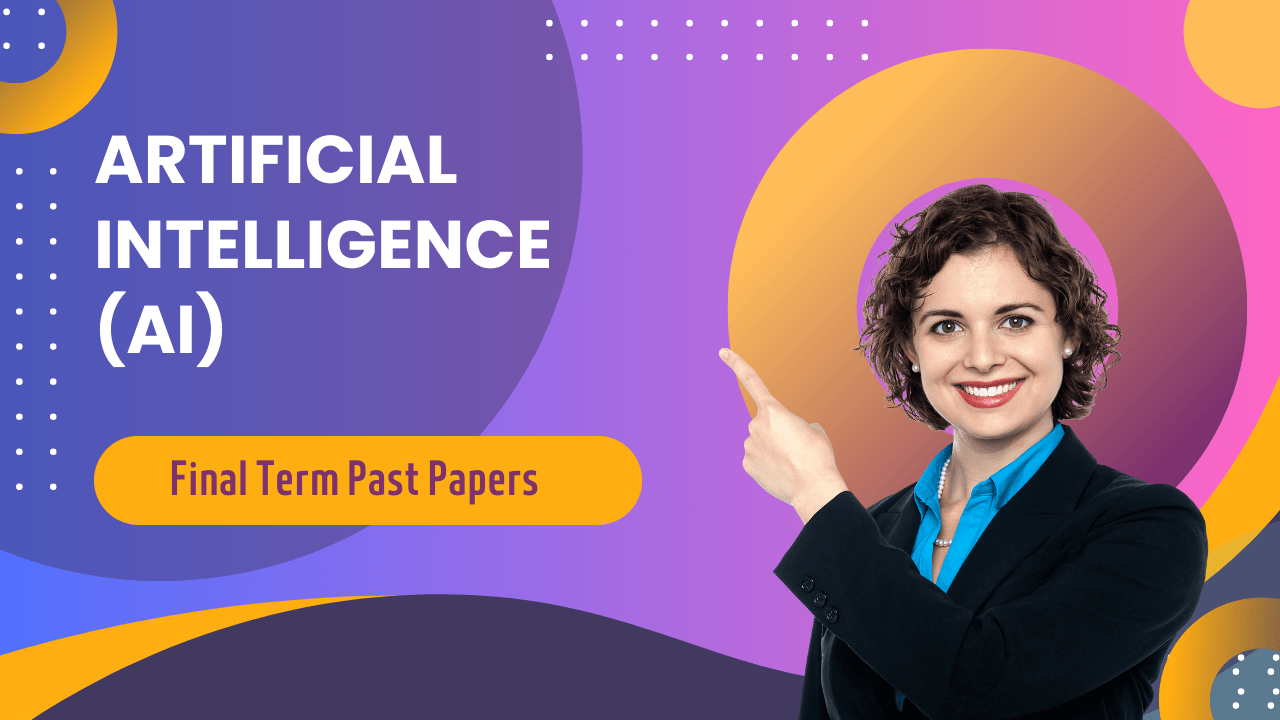Artificial Intelligence | Final Term Past Paper | Superior University | VU Exam Guide

Understanding Artificial Intelligence: A Guide for Superior University Students
Table of Contents
Introduction to Artificial Intelligence
The goal of the revolutionary field of artificial intelligence (AI) in computer science is to build machines that are able to carry out activities that would normally need human intelligence. Learning, making decisions, solving problems, and other skills are all part of these activities. The goal of the AI course at Superior University is to give students a solid understanding of AI’s theoretical and practical applications.
What Will Students Learn?
Upon completing the AI course, students will learn:
- The fundamentals of AI, including history, theories, and development stages.
- Various machine learning algorithms and their applications.
- Deep learning techniques and neural networks.
- Natural language processing and its use in understanding human language.
- Robotics and the programming of intelligent agents.
- Ethical considerations and societal impacts of AI technologies.
Importance of Artificial Intelligence
AI is essential because it can improve data analytics, streamline operations, and find faster solutions to complicated issues than conventional techniques. AI technologies are becoming more and more important for industries including healthcare, banking, manufacturing, and entertainment to stay innovative and acquire a competitive edge.
Real-Time Applications of AI
AI is extensively used in various applications such as:
- Virtual Assistants: Like Siri and Alexa, these AI-driven systems can understand and respond to voice commands.
- Recommendation Systems: Platforms like Netflix and Amazon use AI to personalize recommendations based on user behavior.
- Autonomous Vehicles: Companies like Tesla are employing AI to develop self-driving cars.
- Healthcare: AI is used in diagnostic procedures, treatment personalization, and managing patient data.
Historical Context
The discipline of artificial intelligence was founded in 1956 during a conference held at Dartmouth College, where the term “artificial intelligence” was first used. This signaled the start of serious AI research and development.
Job Opportunities
Graduates specializing in AI can pursue various roles, such as:
- AI Research Scientist
- Machine Learning Engineer
- Data Scientist
- AI Application Developer
- Robotics Engineer
Salary Expectations
Industry surveys indicate that although the average income for AI experts varies greatly based on the function and region, it is typically very high. For example, in the United States, the average yearly compensation for AI engineers is expected to be between $100,000 and $150,000.
Achievements and Benefits
By mastering AI, students can:
- Contribute to cutting-edge technology developments.
- Address and solve real-world problems across sectors.
- Enhance business efficiencies and drive innovation.
Market and Future Value
By 2028, the worldwide AI market is expected to have grown from its 2020 valuation of roughly $62.35 billion to $997.77 billion. This illustrates AI’s current market value as well as its enormous development potential in the years to come.
Importance from an Exam Perspective
Comprehending artificial intelligence (AI) is beneficial not just for scholastic evaluations but also for comprehending intricate practical uses that students may come across in their future employment. Examining the Superior University Final Term Past Paper on Artificial Intelligence can help students understand the structure of questions and the main points of emphasis.
FAQs
Q1: How is AI integrated into everyday applications?
A1: AI is integrated into applications through algorithms that can learn from and make decisions based on data.
Q2: What prerequisites are needed for studying AI?
A2: Basic programming skills and a good understanding of mathematics (especially statistics) are generally required.
Q3: Where can I find study resources for AI?
A3: You can download all Superior University Midterm and Final Term Past Papers from vuexamguide.com to aid your preparation.
Interview Questions
- What are the differences between supervised and unsupervised learning?
- Explain the concept of “deep learning” and how it differs from traditional machine learning.
- What are some of the ethical implications of AI?



Note: You can also checkout all Subject Final Term Past Papers of Superior University.
Conclusion
Not only is artificial intelligence a field of study, but it also opens doors to new job paths and technological developments in the future. It will be essential for Superior University students to comprehend and become proficient in AI due to its expanding significance across several industries. Go to vuexamguide.com to get access to extensive study materials, such as the Artificial Intelligence Final Term Past Paper, to improve your exam preparation and score well. This resource is essential for improving your grasp of AI and getting good grades.
 Virtual University
Virtual University
 Superior university
Superior university